Doctors point out 4 things not to do if you want to save yourself from a heart attack
Prolonged heat can increase the risk of myocardial infarction, especially in groups with underlying medical conditions because increased heat causes the body to sweat more, increase dehydration and reduce blood flow to the body. The heart has to work "harder" which means the risk is also higher.
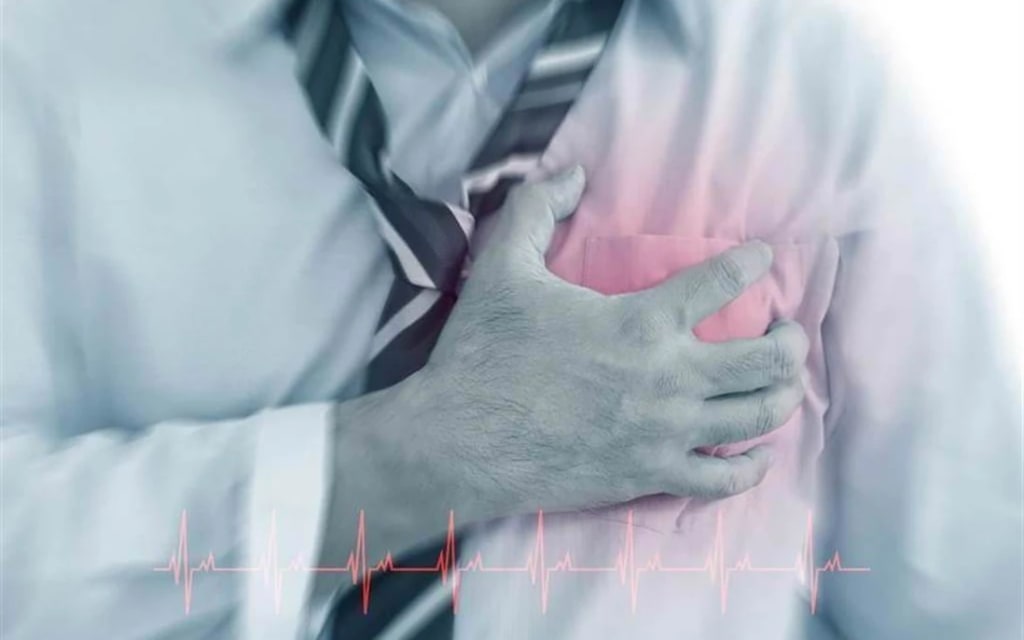
According to the World Heart Association, the golden treatment time for myocardial infarction is 90 minutes after the onset of the disease . In addition to the golden hour, the silver hour in myocardial infarction emergency lasts from 2 to 6 hours after the onset of myocardial infarction symptoms. During this time, the heart muscle has been significantly damaged, and treatment becomes less effective.
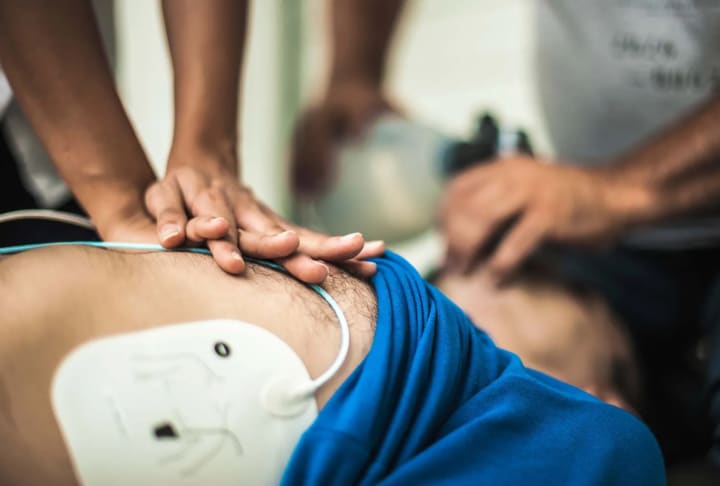
Dr. Huang, specialist in Thoracic and Intensive Surgery at CMUH, affiliated with China Medical University Hospital, emphasized: " In the case of a myocardial infarction, there are 4 things that the victim does "before fainting". must be avoided so that first aid as well as subsequent treatment of myocardial infarction will be more beneficial."
Below are 4 things to avoid when the first symptoms of a heart attack appear, as warned by Dr. Huang , so that the victim can "save themselves" before being given emergency aid by medical staff:
1. Don't endure the pain
Typical signs of a heart attack include chest pain, a dull ache, and a feeling like your chest is being weighed down by a large rock.
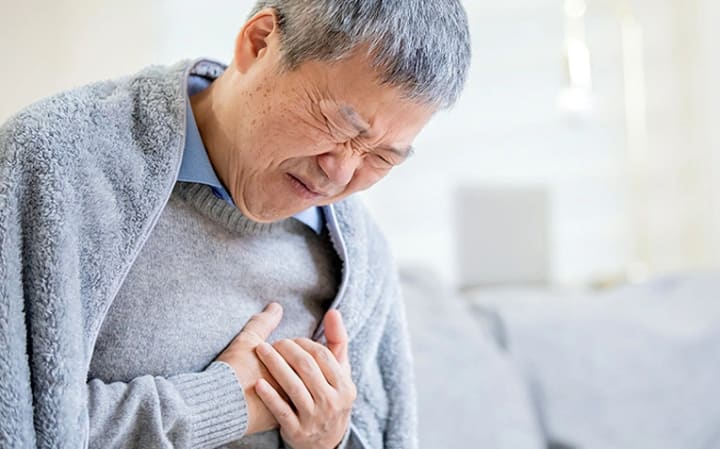
The doctor also noted that, for patients with existing diseases such as diabetes, high blood pressure, the elderly, and people being treated for other chronic diseases, typical symptoms of the disease only need to appear. Myocardial infarction requires immediate examination, no later than 15 - 20 minutes afterward. At this time, the myocardium is only slightly damaged, so myocardial reperfusion will be most effective when the blood vessels are re-expanded. If delayed, the risk of complications is very high.
2. Don't slap yourself or beat your chest
There are many folk beliefs that involve beating the chest or hitting/slapping the arms or coughing hard to relieve the feeling of shortness of breath. However, these popular tips are unfounded.
When you notice difficulty breathing or chest pain, think of the symptoms of a heart attack and see a doctor as soon as possible. Beating your chest or slapping your body will not only not help the symptoms of a heart attack disappear or help dilate blood vessels, but will only increase the burden on the heart and make the heart attack worse.
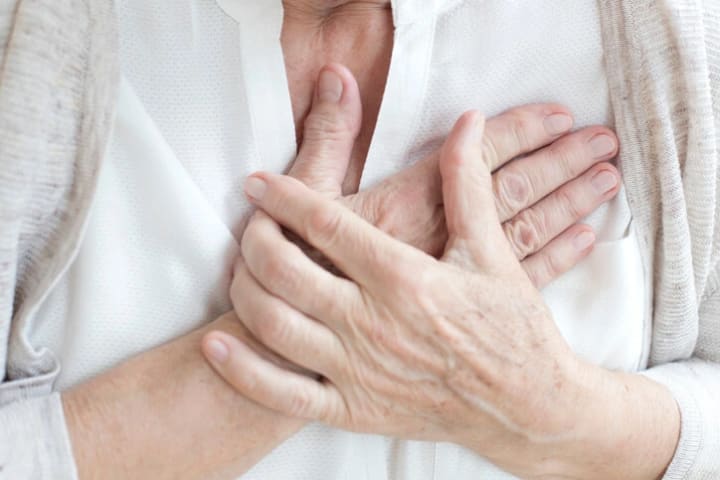
3. Do not take medicine without permission
There have been many cases of people using aspirin, nitroglycerin when they suspect a heart attack or other folk or oriental medicine to prevent stroke without a doctor's prescription. This is extremely dangerous because chest pain can be a symptom of a heart attack but can also be a sign of another health problem.
Not only does self-medication increase the risk, but using nitroglycerin without knowing your blood pressure readings can lead to hypotension in the case of an inferior myocardial infarction (a condition in which part of the heart muscle on the lower surface is necrotic due to acute ischemia) and shock.
4. Do not delay medical examination.
Many patients with myocardial infarction seek medical care late due to wasting time looking up the disease on the Internet and being hesitant about the symptoms of the disease. Information on the Internet is for reference only and too much information can influence judgment.
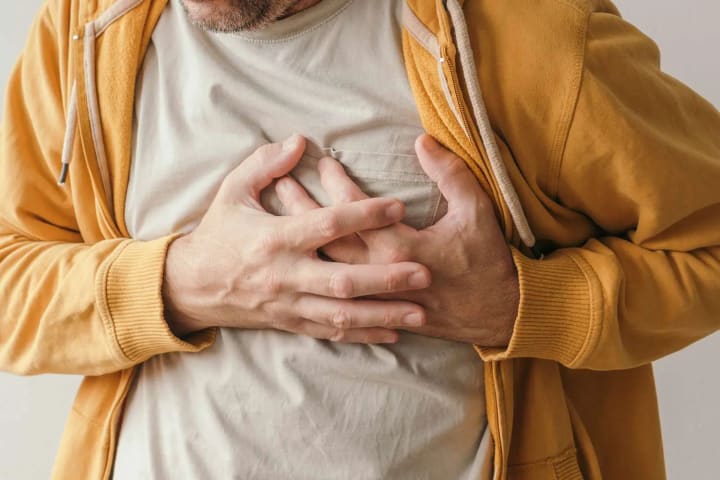
When you feel chest pain, especially if the pain spreads to the left shoulder or arm, accompanied by shortness of breath, nausea or cold sweat , you need to see a doctor as soon as possible to avoid missing the golden time for emergency treatment if the cause is a heart attack, as well as to prevent dangerous complications that affect the quality of life or cause death.
What are the typical symptoms of myocardial infarction?
To not miss the emergency time, you need to master the warning symptoms of a heart attack, which include:
The most common symptom of a heart attack is chest pain, often described as a feeling of squeezing, shortness of breath, tightness, heaviness, or a sharp, burning sensation. The pain is usually in the center of the chest or slightly to the left. Occasionally, people complain of pain that radiates to the arms, abdomen, and lower jaw .
Some other symptoms include:
- Feeling weak and tired
- Sweating
- Nausea, vomiting.
- Shortness of breath
- Headache
- To
- Shock, dizziness
- Fast heart beat.
Sometimes symptoms of myocardial infarction can be confused with gastrointestinal diseases when there is burning pain in the chest area accompanied by nausea and vomiting.
An important note, not all myocardial infarctions have the same symptoms or severe signs. Chest pain is a common symptom in both men and women. However, some studies show that besides chest pain, women often have other symptoms such as:
- Intermittent difficulty breathing
- Jaw pain
- Upper back pain
- Mild headache
- Nausea, vomiting.
In some cases, symptoms of a heart attack are also described as signs of the flu.
In summary, listening to unusual body symptoms is very important, especially chest symptoms to screen for myocardial infarction.
About the Creator
HK Decor
Telling stories my heart needs to tell <3 life is a journey, not a competition
If you like what you read, feel free to leave a tip,I would love some feedback
https://sites.google.com/view/hk-decor/trang-ch%E1%BB%A7
Enjoyed the story? Support the Creator.
Subscribe for free to receive all their stories in your feed. You could also pledge your support or give them a one-off tip, letting them know you appreciate their work.






Comments
There are no comments for this story
Be the first to respond and start the conversation.